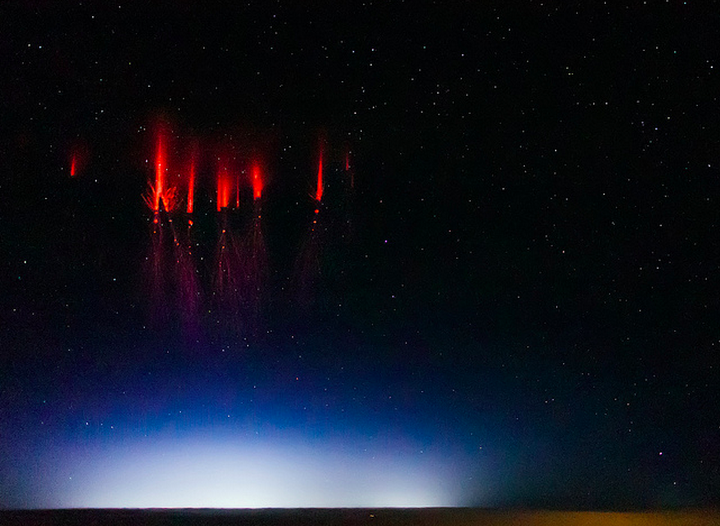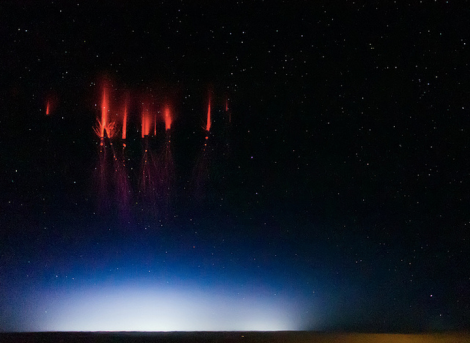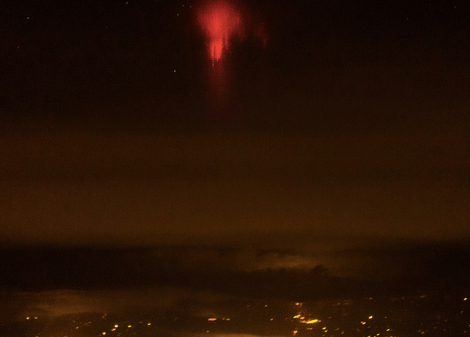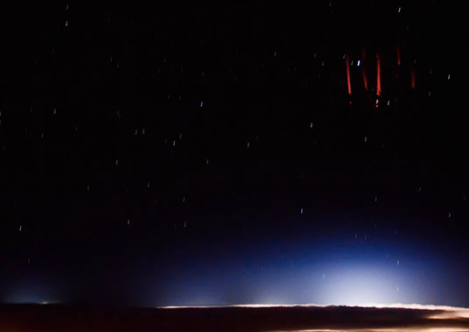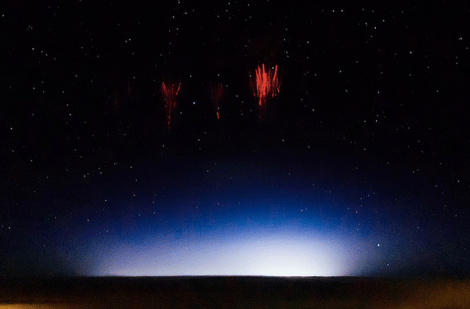What’s that saying? What’s that saying? �
IS THIS AN X-FILE, you ask? No. It’s a real-life file, which is scarier. Researchers with the U.S. Air Force Academy and Fort Lewis College have been chasing sprites this summer:
Sprites, also known as red lightning, are electrical discharges that appear as bursts of red light above clouds during thunderstorms. Because the weather phenomenon is so fleeting (sprites flash for just milliseconds) and for the most part not visible from the ground, they are difficult to observe and even more difficult to photograph, rather like the mischievous air spirits of the fantasy realm that they’re named for …
This is no Stanley Tucci wearing glued-on horns and hanging out with Ally McBeal, and the year is not 1999. These sprites are LEGIT.
A large electric field, generated by some lightning strokes, ionizes the air high above the cloud, which then emits the light we see in the pictures. They obviously beg comparison to the regular lightning bolts we see all the time, but … sprites are much higher, with the tops reaching up to around 100 kilometers and higher. A lightning bolt might stretch around 10 kilometers from the cloud to the ground, but a sprite can reach 50 kilometers [31 miles] tall.
Those elusive li’l buggers. (Or large buggers, rather.) I GUESS this means the red sky-streaks aren’t signs of an impending alien takeover, but Imma put Scully on speed-dial. Just in case.

